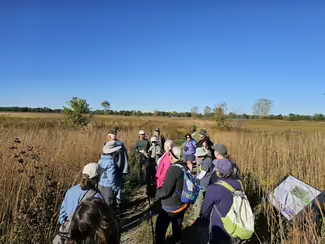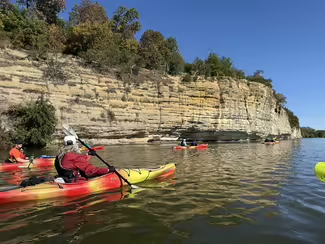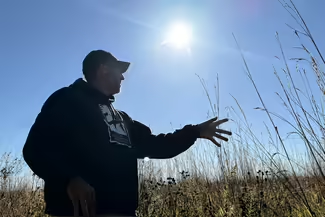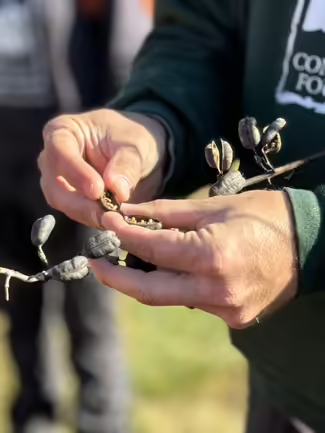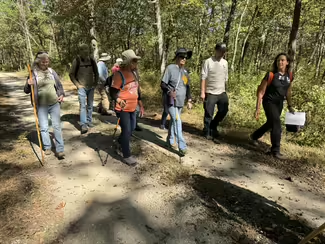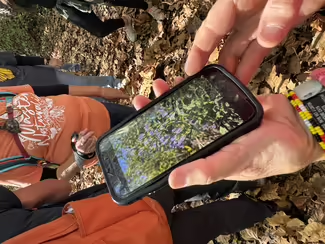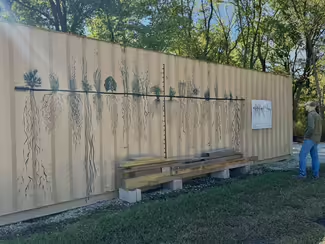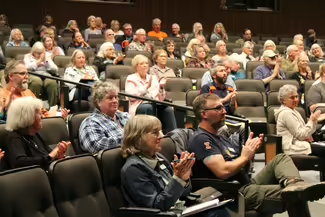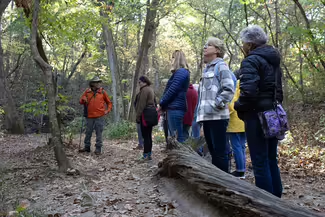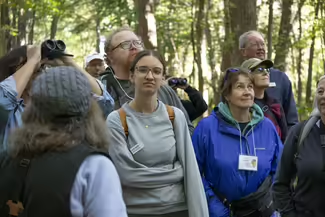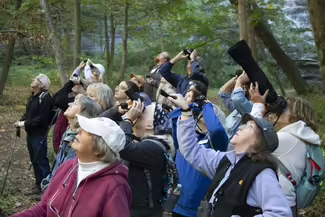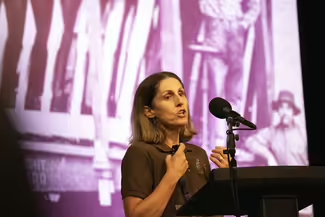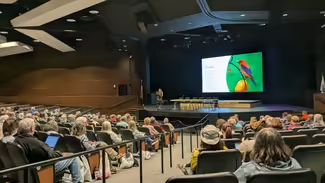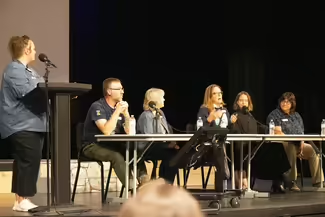Subtitle
Soaring to Higher Heights and Connecting Through Conservation
Title
2025 Illinois Extension Master Naturalist state conference
Title
2025 Illinois Extension Master Naturalist state conference
Body
University of Illinois Extension’s Master Naturalists gathered in Oglesby to visit Starved Rock State Park to learn and explore together. Against a backdrop of migrating pelicans floating in the Illinois River at the base of Starved Rock’s namesake sandstone bluffs and bald eagles soaring overhead, 180 Extension volunteers and staff came together on Oct. 9 and 10 for Extension’s Master Naturalist state conference.
The conference was hosted by staff from the local Extension offices in Bureau, LaSalle, Marshall, and Putnam counties.
